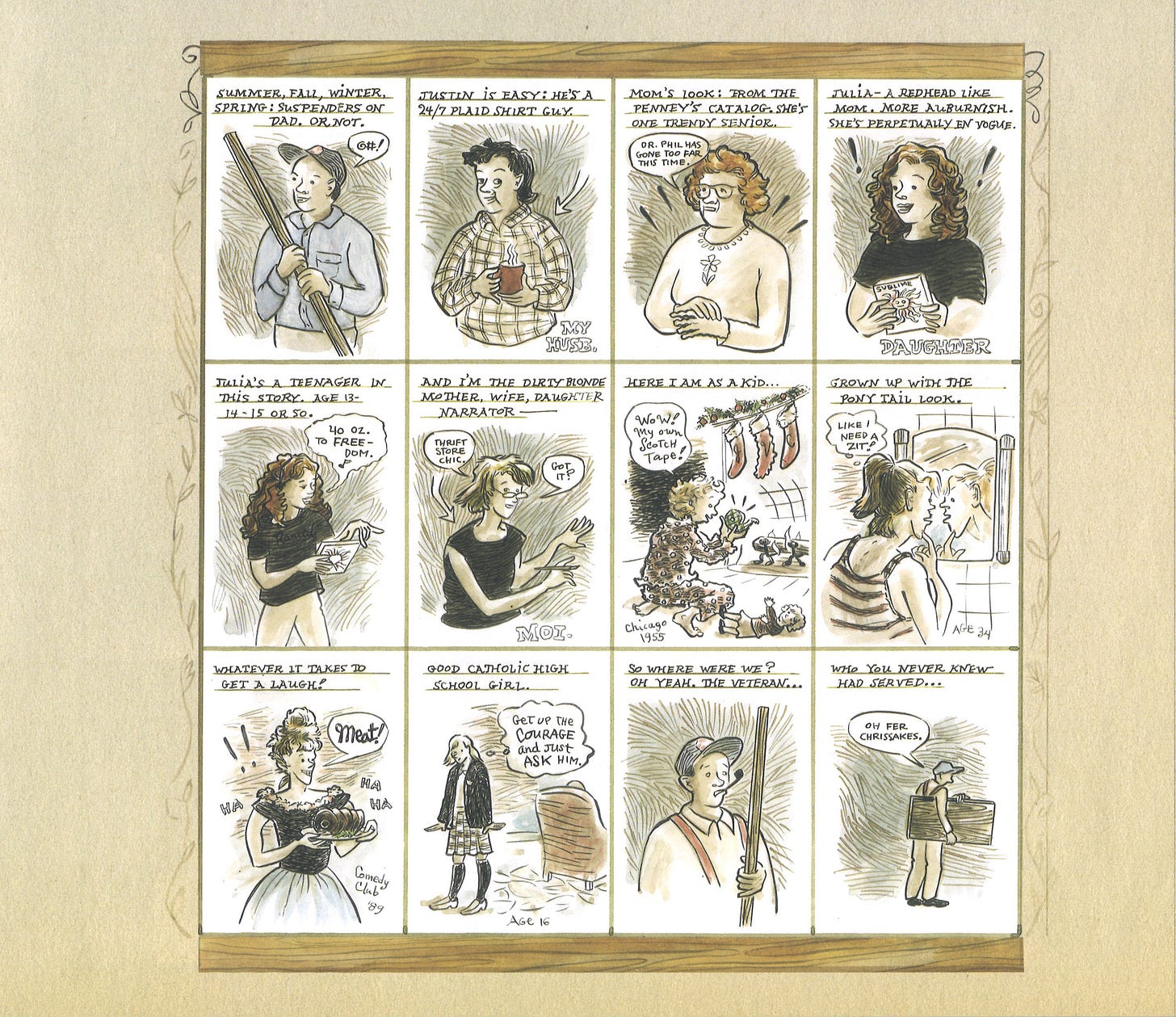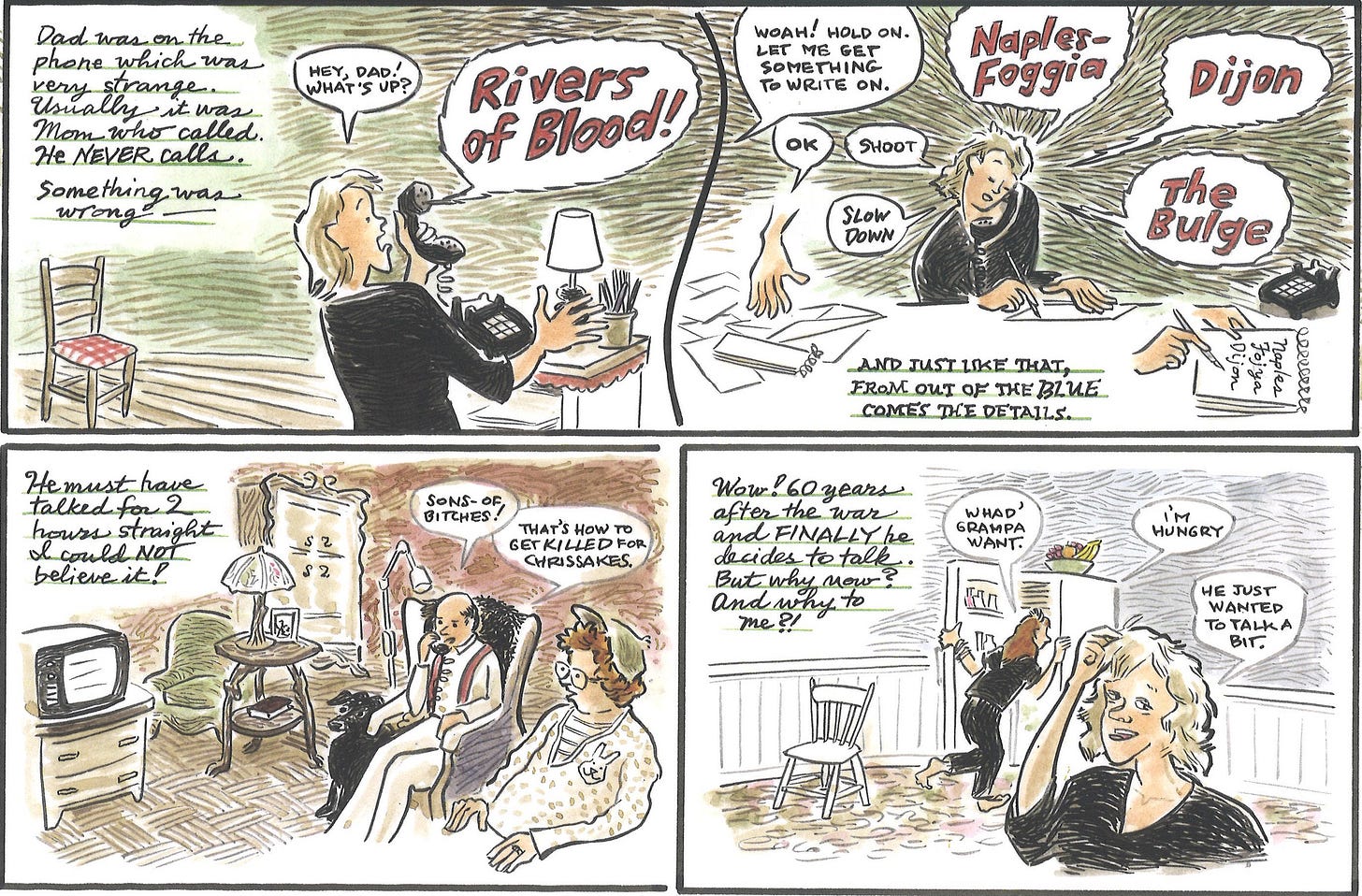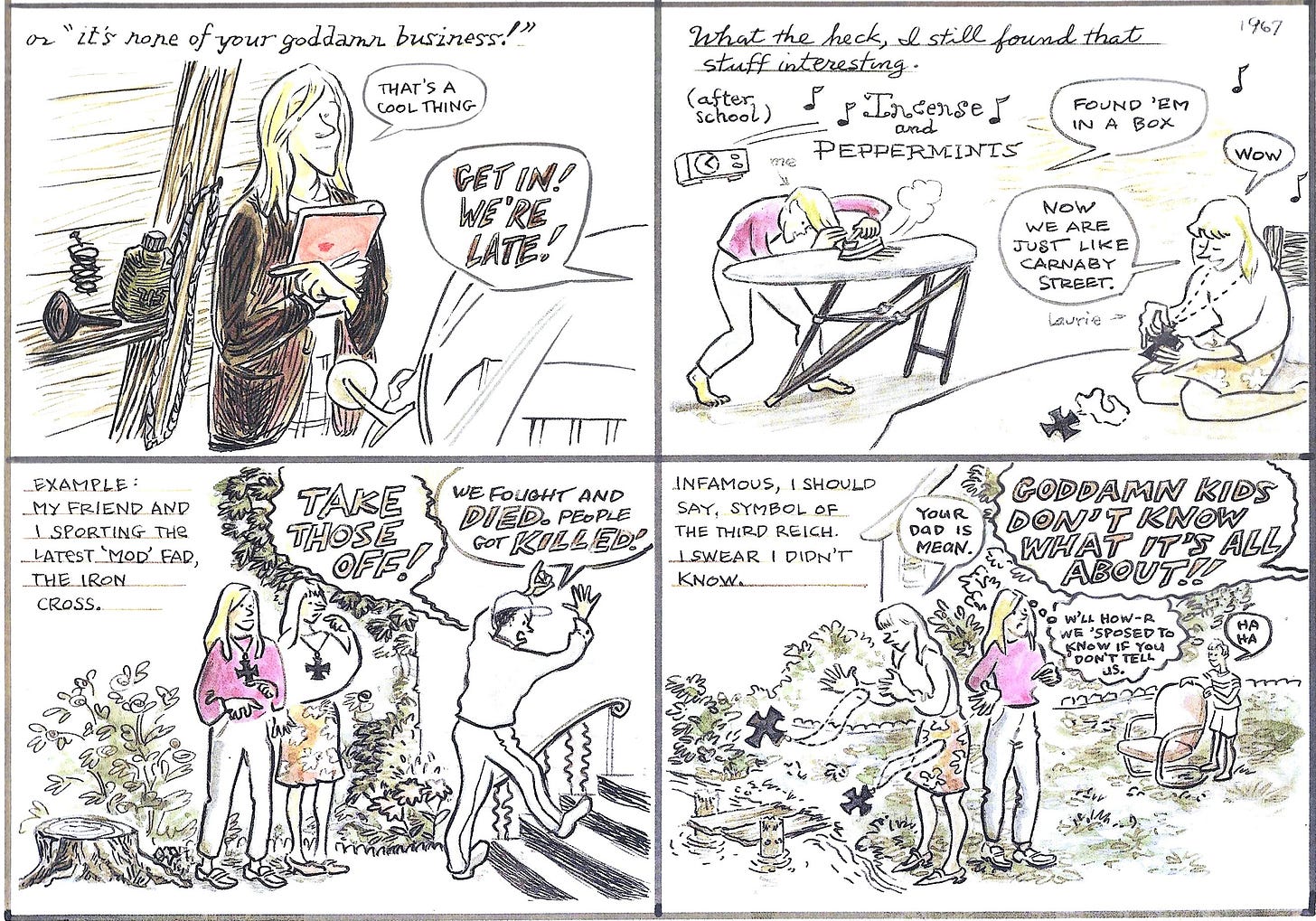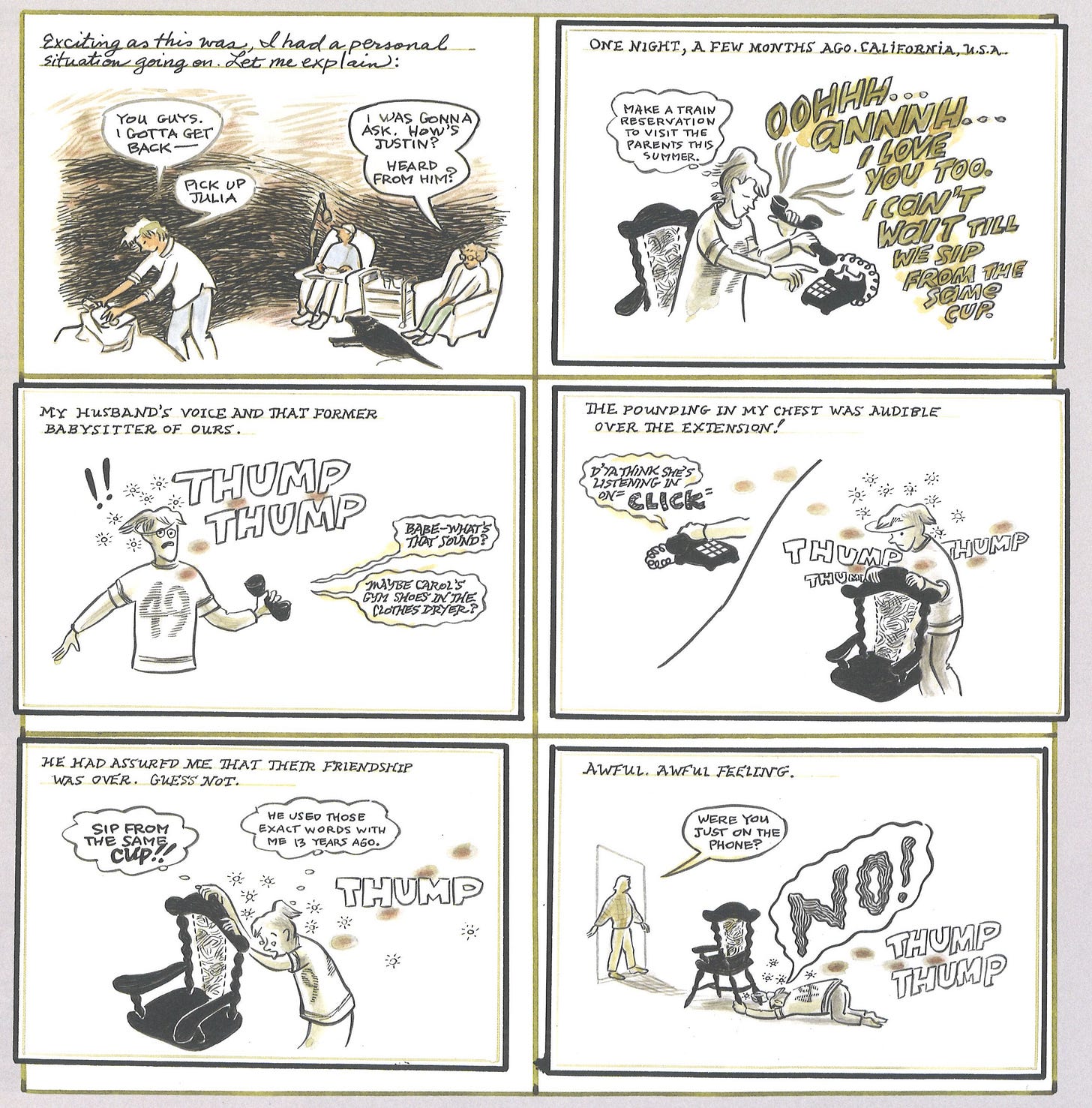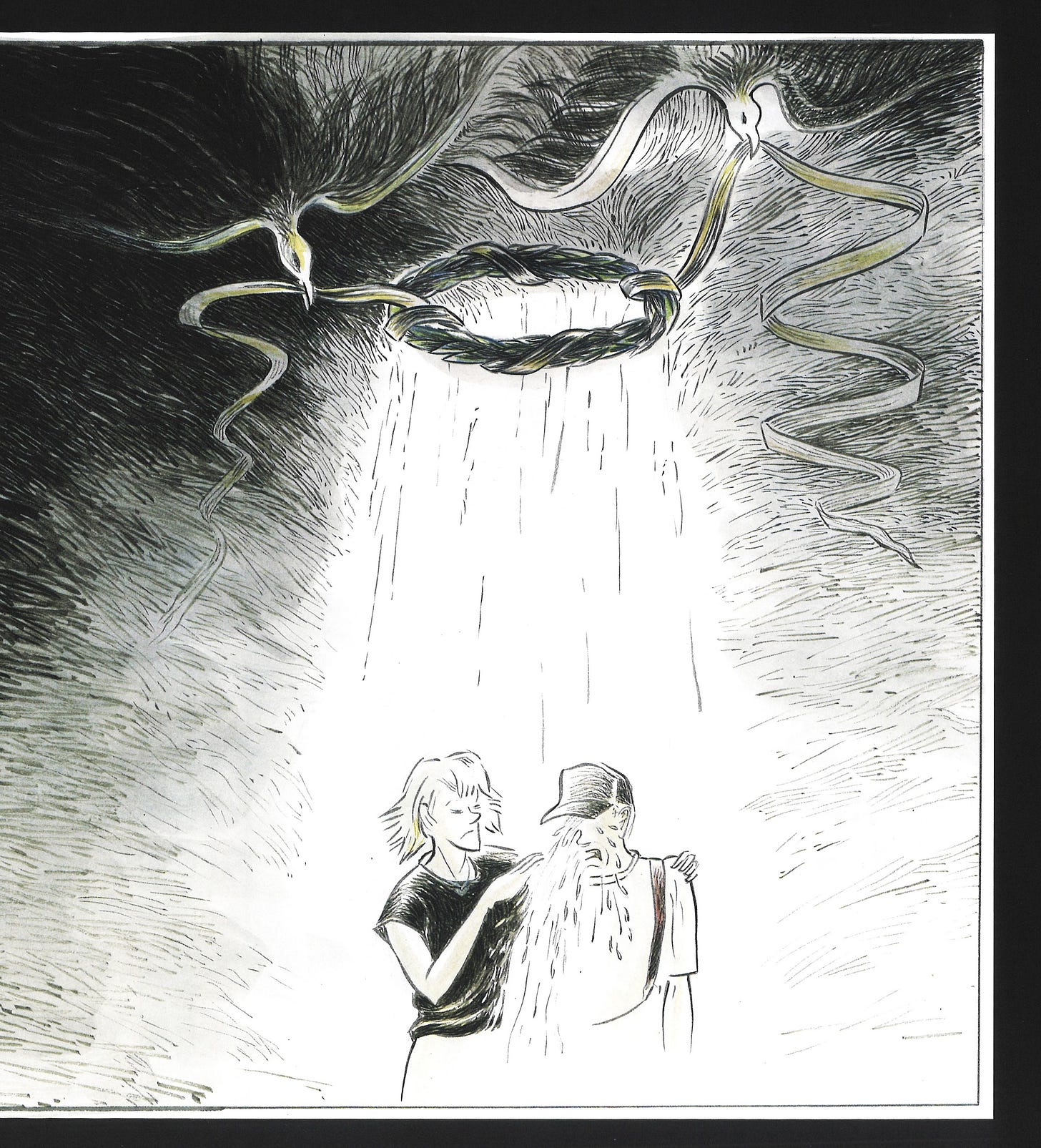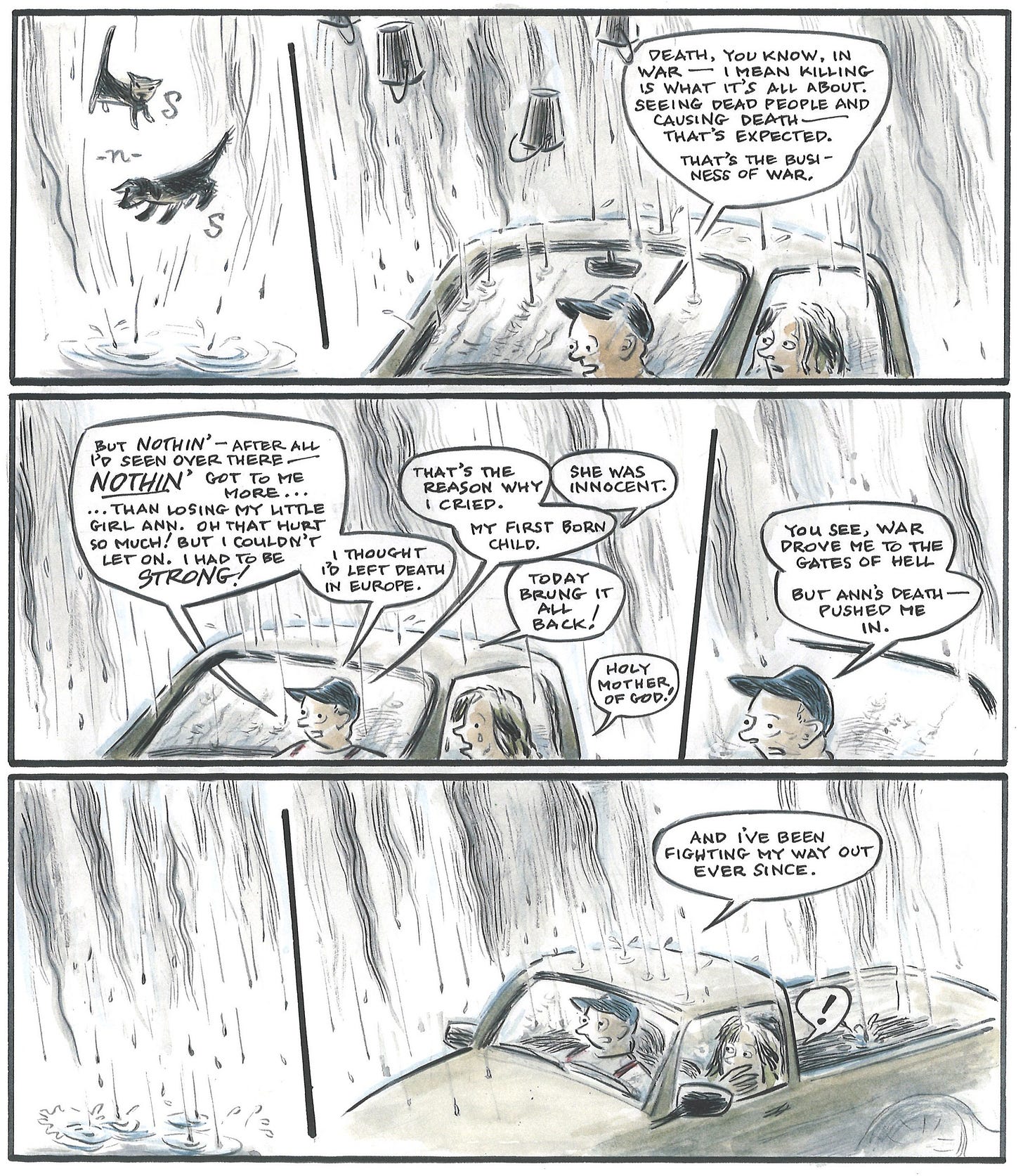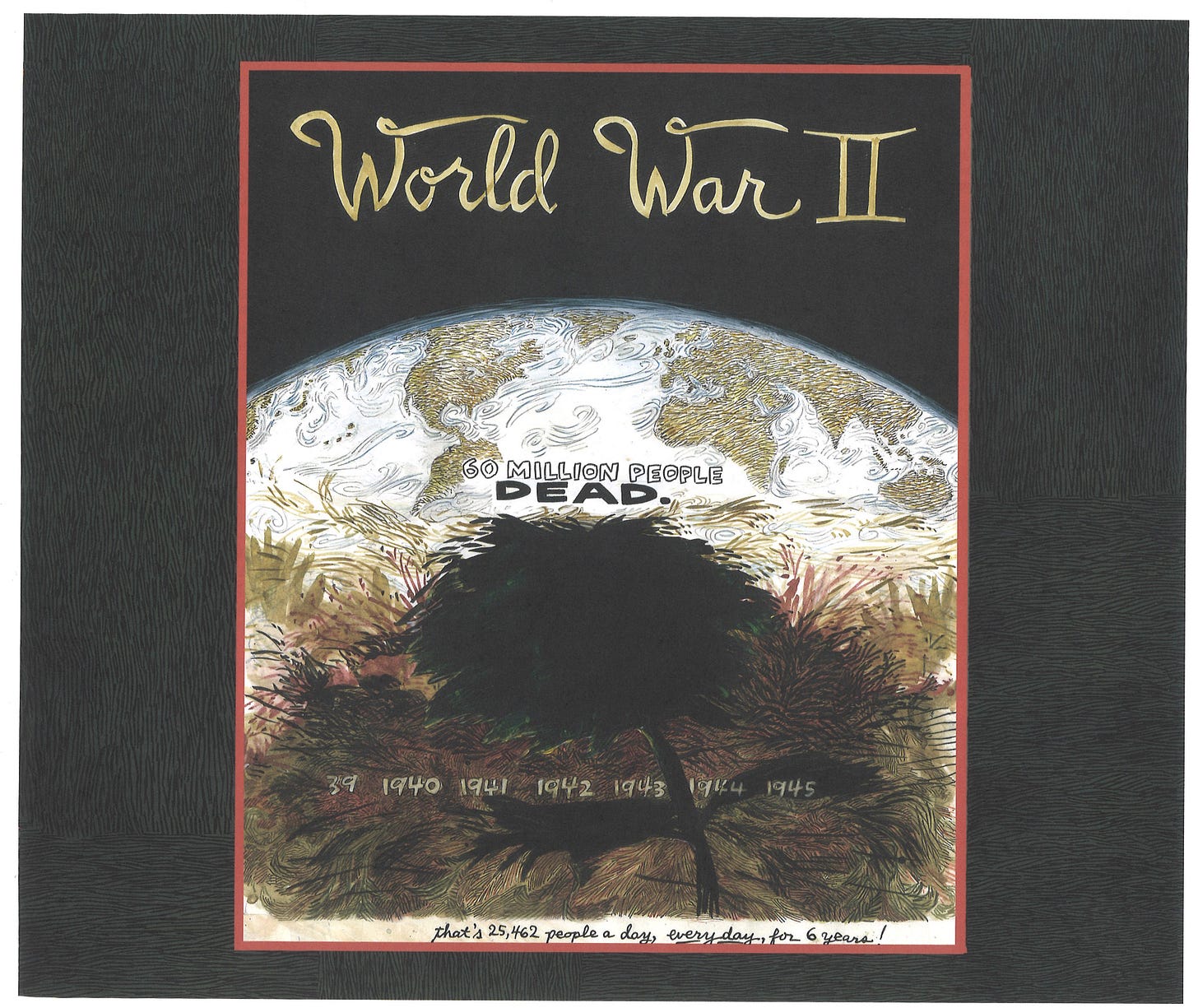Comics is historically a working class occupation. Some cartoonists wear their proletariat origins loudly and proudly, like Lat or today’s subject, Carol Tyler. (They are kind of balanced by one cartoonist on my list who is literally the great grand-daughter of an emperor, Marjane Satrapi.) Carol Tyler might come from working class stock, but she is comics royalty. She was married to Justin Green, widely considered one of underground comix’ most important cartoonists. Her father, Charles Tyler, was a rough and ready plumber from Chicago. The comic I am looking at today is a massive autobiographical saga of Tyler’s family, especially concentrating on Charles Tyler’s service in the U.S. army during World War II.
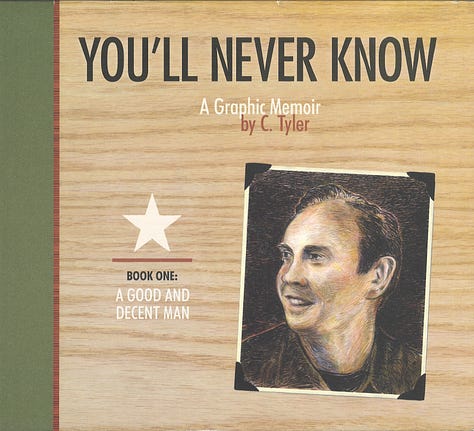
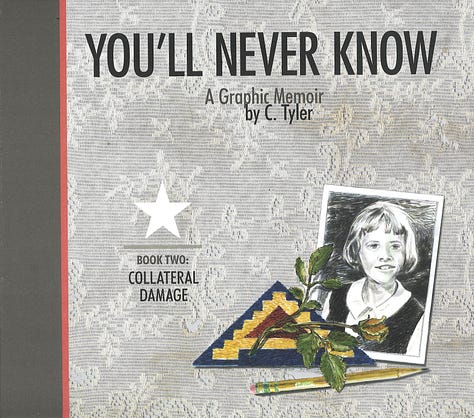
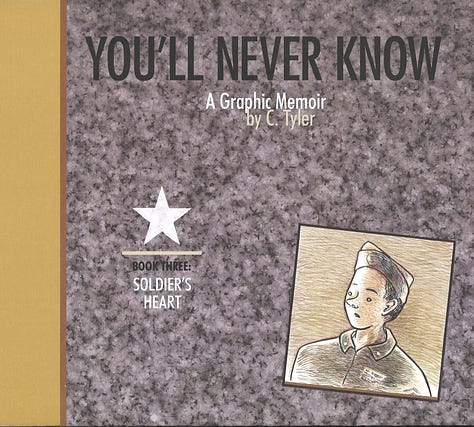
For some reason, the publisher, Fantagraphics Books, printed this book as three hardcovers. I’m going to assume that it was done for economic reasons—artistically, this feels like a single work. It doesn’t neatly split into three. In 2015, Fantagraphics and Tyler collected the three volumes of You’ll Never Know into a massive one-volume edition called Soldier’s Heart. The collected edition appears to be the authorized version—it contains 30 more pages than the three hardcovers.
Even though this is a continents-spanning story, it is narrowly focused on members of Tyler’s family. Early in the narrative, Tyler gives us a dramatis personae.
The format of the books is somewhat horizontal. It is meant to resemble a photo album or scrapbook. One of the elements of the plot running through are an attempt by Carol Tyler to make a scrapbook of war memories for her dad, Charles, usually referred to as Chuck. Like a lot of veterans, Chuck never talked about his war experiences. Given this, Carol is surprised one day when Chuck calls up an seems to want to unburden himself.
Chuck had been in the infantry in North Africa, Italy and France. He fought in the Battle of the Bulge. And Carol was only learning the details as an adult. She only knew he had been a soldier in the war. The obvious question was why did he wait until this moment? Carol recalls seeing a photo album and oddball olive drab items stored away in the garage.
Chuck’s anger over teenage Carol and her friend naively wearing two iron crosses as fashion accessories would have been a good time to start this conversation. But it didn’t happen until decades later. From a story-telling point of view, this is great for suspense because we readers want to know what it was that kept Chuck from talking about it his whole life—was it something terrible or traumatic or guilt-inducing? Part of the action of the story involves Carol trying to find out about Chuck’s life as a soldier—researching it at various veterans’ archives. Her research project involves producing a scrapbook of war memories for Chuck—which I assume is why the three books are designed to look a little like scrapbooks.
While this is all going on, Carol’s home life is disordered. She learns by accident that Justin is having an affair with a former babysitter of theirs.
Carol and Justin have a teenage daughter Julia who is going through a period of mental illness. At first it just feels like typical teenage rebellious behavior—drinking, hanging out with bad friends, etc. But it gets much darker.
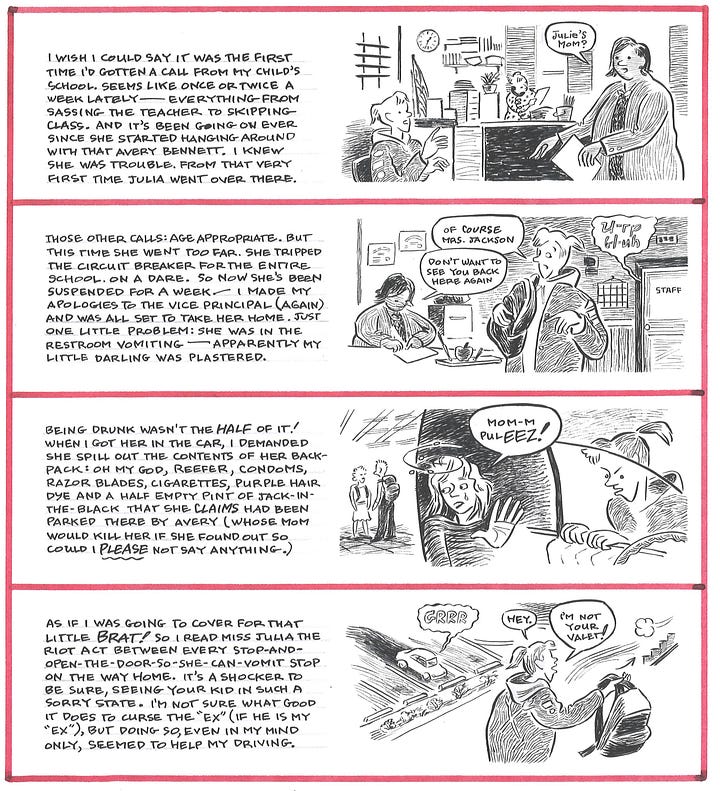
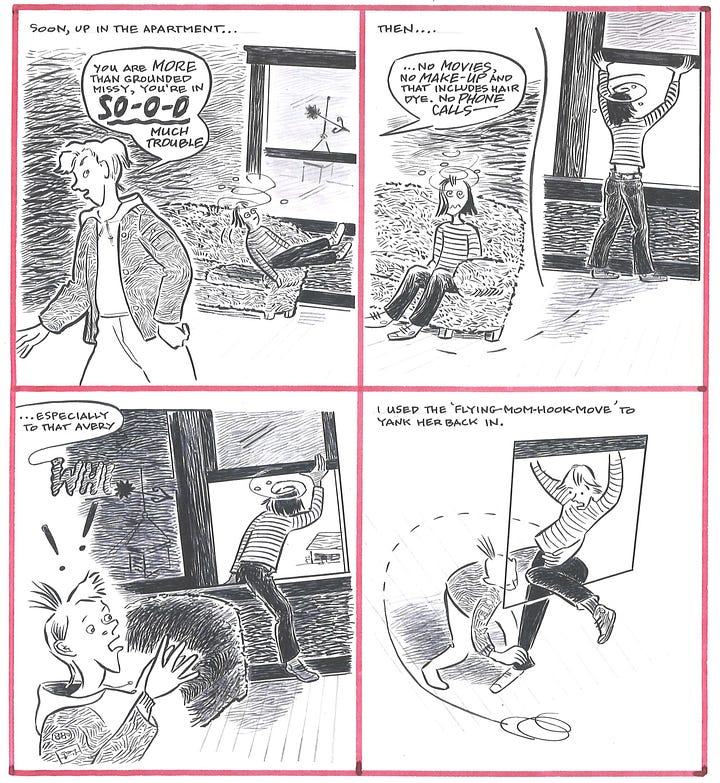
To cope with these two issues, Justin moves out (for a while) and Julia is briefly hospitalized. As readers of Justin Green know, he had an extreme case of OCD. He wrote and drew one of the all-time classics of underground comics about his OCD: Binky Brown Meets the Holy Virgin Mary (which I plan to write about for this list at some point).
Carol learns that the “rivers of blood” phone call wasn’t a traumatic flashback, but rather an attempt to get some compensation from the army for an injury that Chuck has no memory of. Much of Chuck’s war records were lost in a ship that went down during the war, but Carol is diligent in her research. You’ll Never Know is a biography of Chuck Tyler, among other things. And Chuck is an ornery cuss.
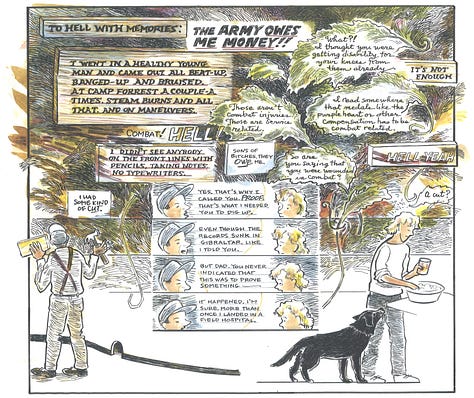

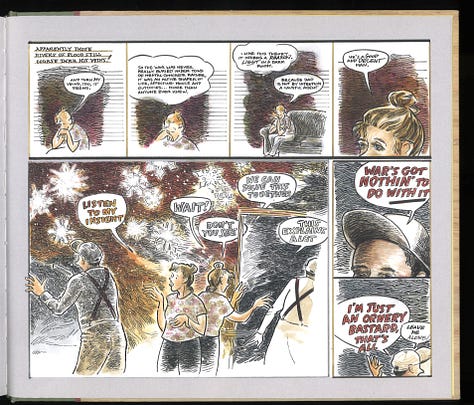
Carol’s relationship with Chuck is fraught. He has been an unkind father to her for her whole life. But now that he is fragile and not holding back about his wartime experiences, she starts building the scrapbook biography, which includes the “rivers of blood” episodes and a period during the Battle of the Bulge during which time Chuck was hospitalized and has no memory of.
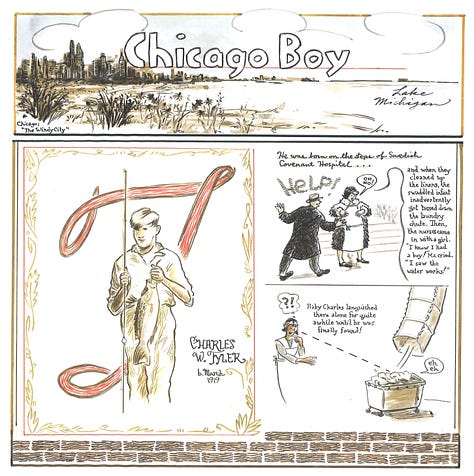
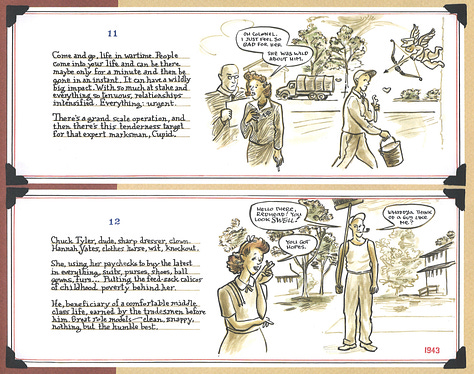
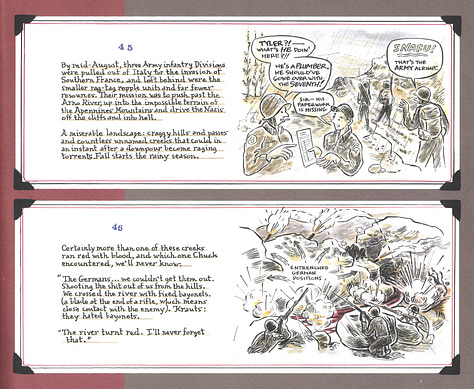
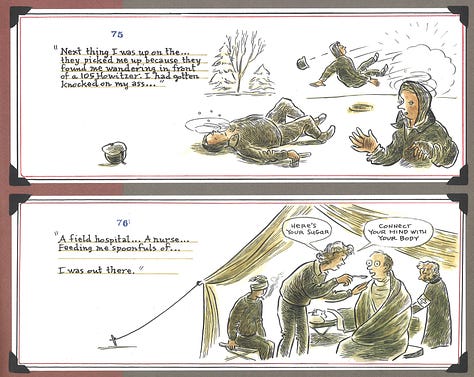
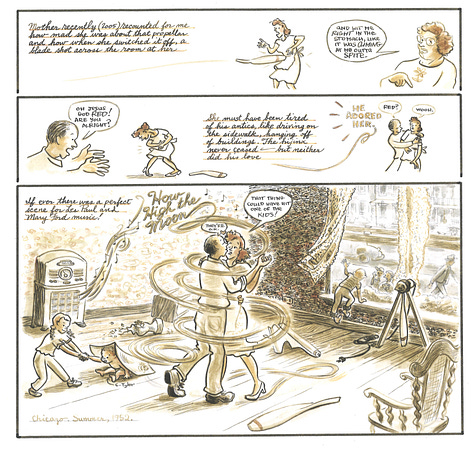
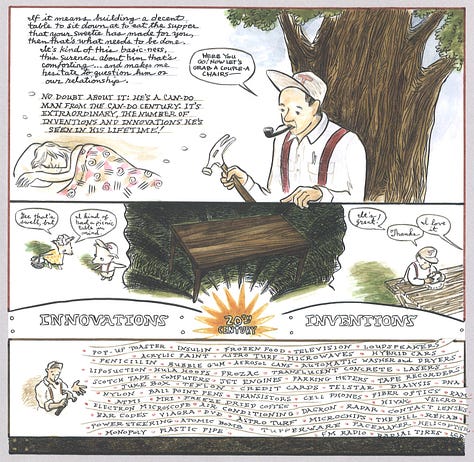
At the heart of You’ll Never Know is a 17-page story called “The Hannah Story”. Tyler drew it in 1994, and it was published in Drawn & Quarterly #1. The Hannah of the story is Carol Tyler’s mother, and the story is a moving account of how Hannah and Chuck lost their first child, Ann, in a terrible accident when she was barely able to walk. I remember reading this story when it came out and crying. The critical community that existed for comics agreed, and we put it in “The 100 Best Comics of the Century” list at #97.
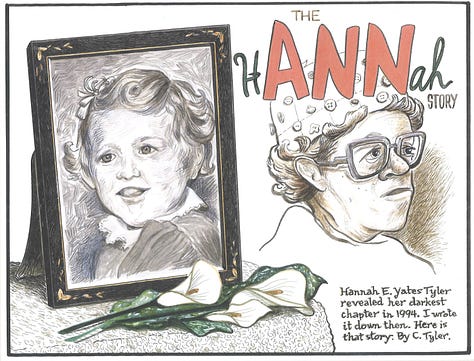
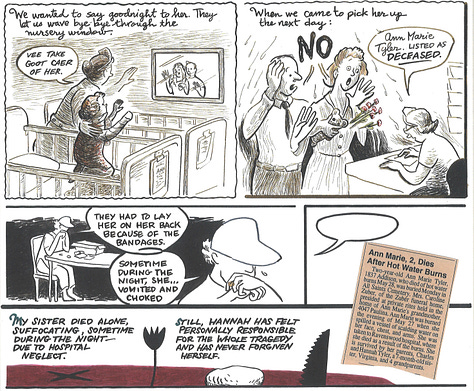
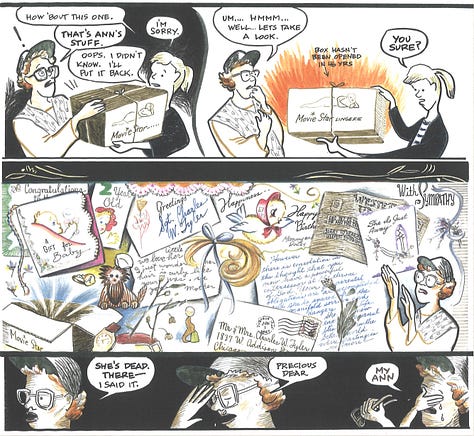
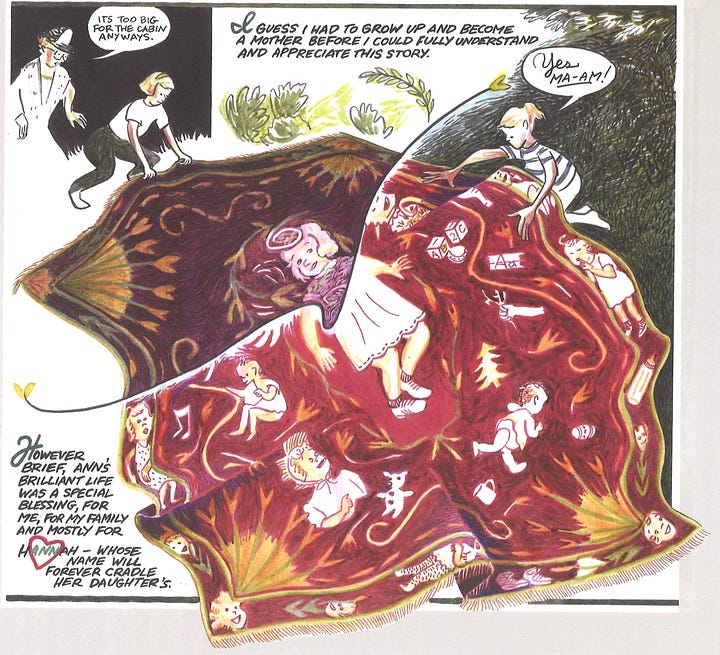
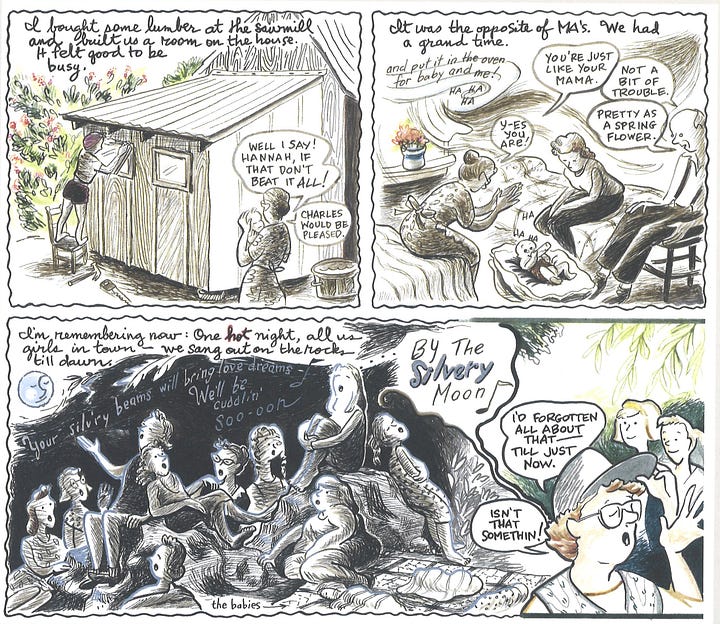
Part of the reason that “The Hannah Story” is in there is to parallel Carol’s issues with Julia. But most important is that it is part of the trauma that Chuck suffered. After three books of trying to figure out what happened to him, Carol and Chuck visit the World War II monument in Washington, and Chuck breaks down.
He is not crying for the war dead that he witnessed. It’s Ann that pushes these tears out.
This is an emotional moment, and obviously the climax of the story, but you might be forgiven for putting this somewhat pat explanation for Chuck’s demeanor into his own mouth. Having the main character have a revelation about himself and explain it to the other character seems a little convenient. But we readers have been through a long, emotionally harrowing journey to get to this point.
Tyler has an eye for telling details, such as her depiction of her very primitive studio and the working class funeral home behind her apartment.
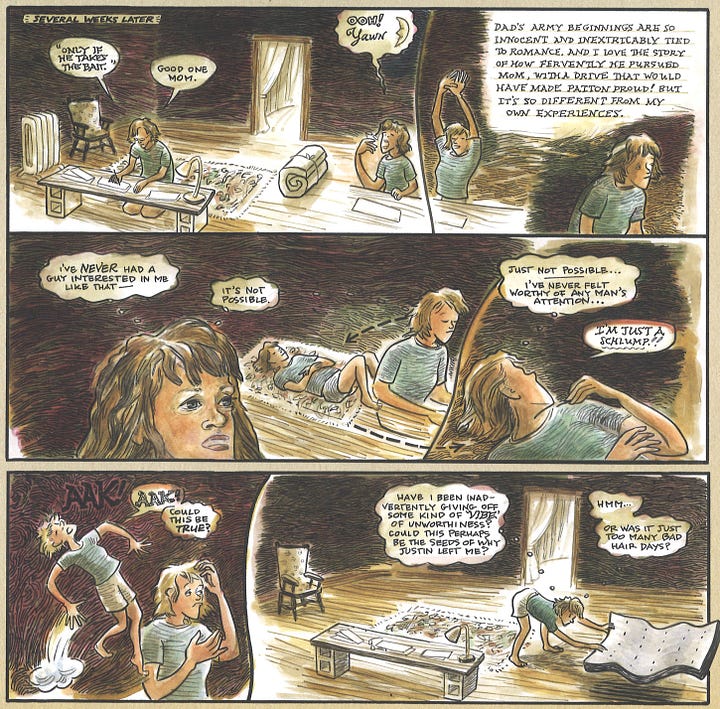

Justin returns to the family fold, very embarrassed about his affair. (Green died in 2022.) Julia is out of the hospital by the end of the story. Hannah and Chuck were still alive—in their 90s—at the time Tyler was drawing the last pages of You’ll Never Know. There have been comics about World War Two ever since the war happened, but I rank You’ll Never Know among the best—a story of how a traumatic geopolitical event changed the lives of two working class American 20-year-olds and all their descendants.
For the next few days, I will be attending Comics Sans Frontières at Rice University here in Houston. Please come out if you can!
[Please consider supporting this publication by becoming a patron, and you can also support it by patronizing our online store. And one more way to support this work is to buy books through The Great God Pan is Dead’s bookstore. ]




